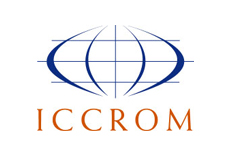22-25 March – Heritage Science Conference: Sustainable Heritage Bidecennial Conference: Strategic Research Questions
Categoría: Noticias
The UCL Institute of Sustainable Heritage celebrates 20 years and will host the Sustainable Heritage Bidecennial Conference. It will take place over four days from 22-25 March 2021, starting at 5 PM CET each day.
We recommend everybody interested in heritage science to assist to the sessions organized the 24th, but see the full program here: Conference program
 The conference will be chaired by Prof Matija Strlic, Professor of Heritage Science.
The conference will be chaired by Prof Matija Strlic, Professor of Heritage Science.
The conference will be virtual and held on Zoom and it is free of charge.
Each day is related to a general topic.
- Heritage risk and resilience | 22 March 5pm (CET) |Led by Prof Kalliopi Fouseki |INSCRIPTION
- Modern and contemporary heritage | 23 March 5pm (CET) |Led by Dr Katherine Curran| INSCRIPTION
- Heritage science | 24 March 5pm (CET)| Led by Dr Josep Grau-Bové | INSCRIPTION
- Future heritage | 25 March 5pm (CET) |Led by Prof Richard Sandford| INSCRIPTION
It will also include some roundtables disccuions and two programmed workshops organised with Social Sciences & Humanities Open Cloud (SSHOC)
Citizen Science & Cultural Heritage – Planning for success | 24 March 12 am – 1pm (CET)
Digitising museum objects using basic photogrammetry | 25 March 12 am – 1 pm (CET)
If you look for more information click on the link below. There you can find all the conference sessions, speakers and times. Be aware that the times on the web are GMT +1.
Get the full information about this event here: https://www.ucl.ac.uk/bartlett/heritage/events/2021/mar/sustainable-heritage-bidecennial-conference-strategic-research-questions
Organized under the support of:




